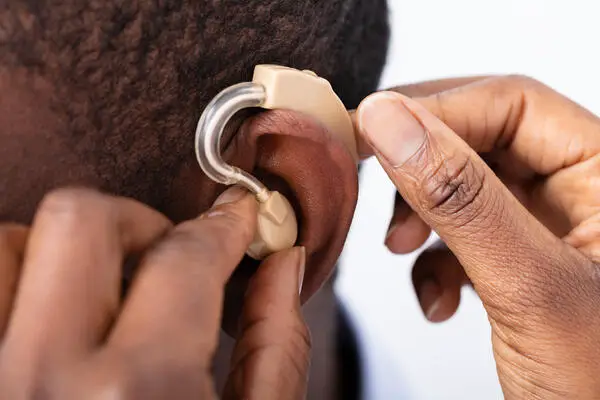
7 Reasons You May Need A Hearing Aid
Hearing is one of your essential senses, enabling communication, promoting safety, and enriching your life experiences. However, several factors can lead to decreased hearing ability over time. When this happens, a hearing aid can be an invaluable tool to enhance your quality of life.
There are several reasons why you may need a hearing aid. Here are some of the most prevalent ones:
Experiencing Tinnitus
Tinnitus, characterized by a persistent ringing or buzzing in the ears, is often associated with some form of hearing loss. While tinnitus can be mildly annoying for some, it can also be severely disruptive, affecting concentration, sleep, and mental health.
Addressing the underlying hearing loss with a hearing aid may give you relief. Modern hearing aids for tinnitus also come with specific tinnitus masking features, emitting soothing sounds to help divert your attention away from the bothersome noise.
Avoidance Of Social Gatherings
If you've been avoiding social gatherings due to difficulty hearing, it's time to consider a hearing aid. Difficulty in hearing can lead to misunderstandings, causing embarrassment and frustration. It may also cause you to withdraw from social events to avoid these uncomfortable situations.
Hearing aids can dramatically improve your ability to engage in social situations, allowing you to participate in conversations easily. With improved hearing, you'll be able to enjoy social interactions again.
Safety Concerns
Hearing defects can pose a significant risk to personal safety, especially when hearing important sounds is essential. For instance, if you're a senior citizen and driving is your favorite pastime, you must hear sirens from emergency vehicles or honking from other cars. If you can't hear these sounds, you could put yourself and others at risk of injury or harm.
Similarly, hearing smoke alarms or carbon monoxide detectors is crucial if you're at home. These devices alert you to potential dangers, but you could be harmed if you can't hear them.
Furthermore, hearing loss can pose a significant safety risk if you work in an environment with heavy machinery or other loud equipment. It can also be challenging to communicate with coworkers or hear warning signals, which could lead to accidents or injuries.
A hearing aid can help amplify these important sounds and keep you safe. If you're concerned about your safety due to hearing loss, seek help from a hearing healthcare professional. They can evaluate your hearing and recommend the best type of hearing aid for your needs, helping you stay safe and connected with the world around you.
Persistent Difficulty In Hearing Conversations
It's easy to ignore a slight difficulty in hearing, attributing it to people speaking softly or background noise. However, consider a hearing aid if you're consistently struggling to follow conversations, especially in a group setting or noisy environment.
Often, you might find yourself asking people to repeat themselves or leaning in to hear better. You might also notice that you have a harder time understanding women's and children's voices, as they tend to be higher in pitch. These situations can be frustrating and isolating, and a hearing aid can help restore your confidence and engagement in social interactions.
Increasing The Volume On Electronic Devices
If you frequently turn up the volume of your mobile phone, television, or radio, it's time to get a hearing aid. Many people with hearing loss initially compensate by increasing volumes. Yet, this solution isn't always effective and can create problems, particularly when sharing living spaces.
Increasing volumes isn't a long-term solution. It may cause additional damage to your hearing. On the other hand, various types of hearing aids are specifically designed to amplify sounds safely, making them a better choice for maintaining your hearing health.
Struggling With Fatigue And Stress
You might not associate fatigue and stress with hearing loss, but there's a connection. When you're having trouble hearing, your brain works overtime to fill in the gaps, which can be mentally exhausting. Over time, this can lead to stress, fatigue, and even headaches.
Getting a hearing aid can alleviate this stress by enhancing sound inputs, thus reducing the cognitive load on your brain. It may help increase energy levels and improve mood, showcasing the benefits of hearing aids beyond just better hearing.
Difficulty Hearing High-Pitched Sounds
One of the first signs of hearing loss is difficulty hearing high-pitched sounds. It might manifest as an inability to hear the ringing of a telephone, the chirping of birds, or the beeping of a microwave. These everyday sounds form part of life's soundtrack; losing access to them can feel limiting.
Hearing aids can be precisely tuned to amplify these high-frequency sounds, restoring your hearing ability. It can significantly enhance your daily living experience and ensure you take advantage of these essential auditory cues.
Conclusion
While acknowledging the need for a hearing aid can be challenging, it's also an opportunity to enhance your quality of life. Its benefits can also go beyond improving your hearing. A quality hearing aid will help you understand speech better, participate in conversations more easily, and enjoy your favorite activities again.